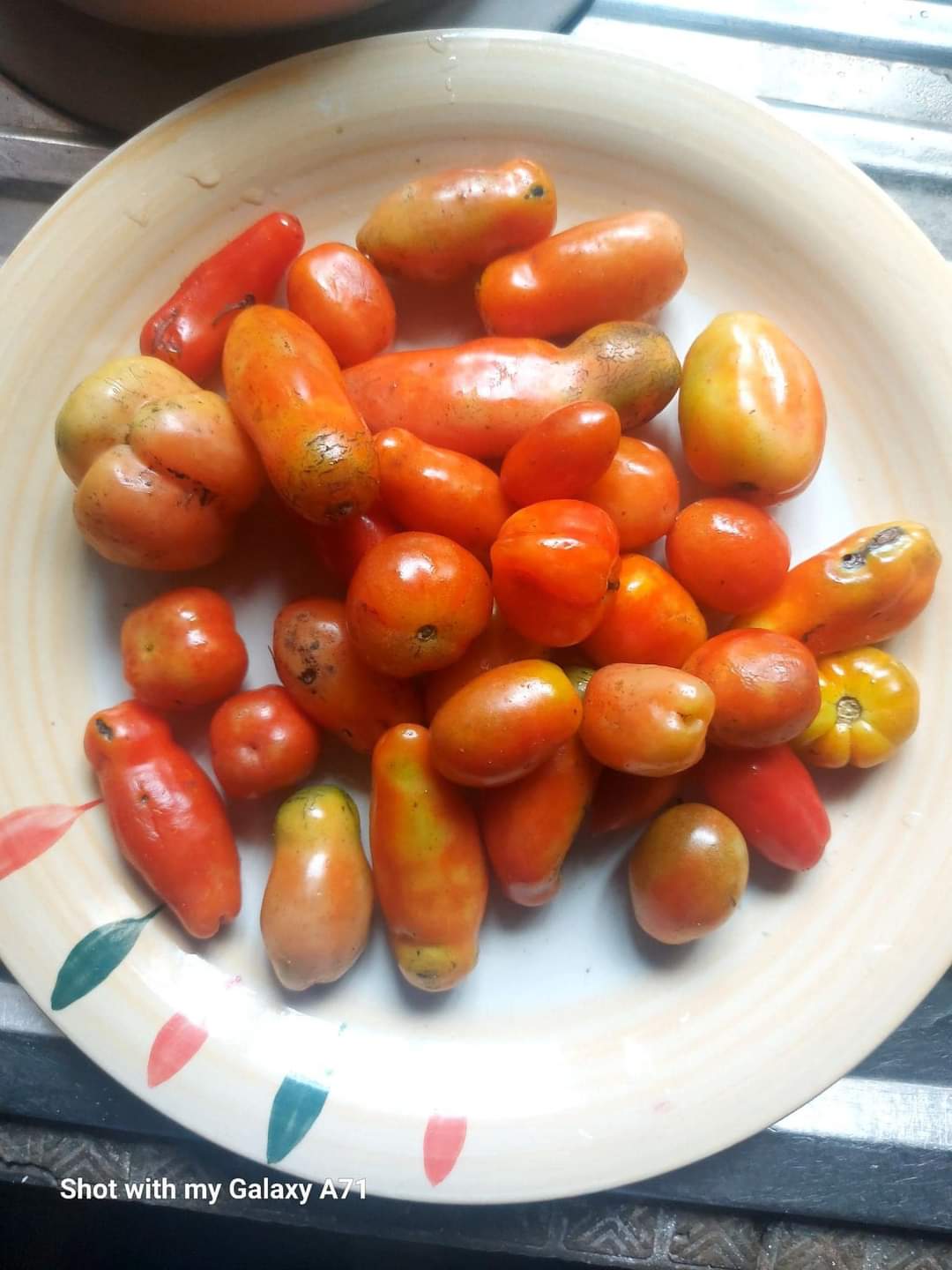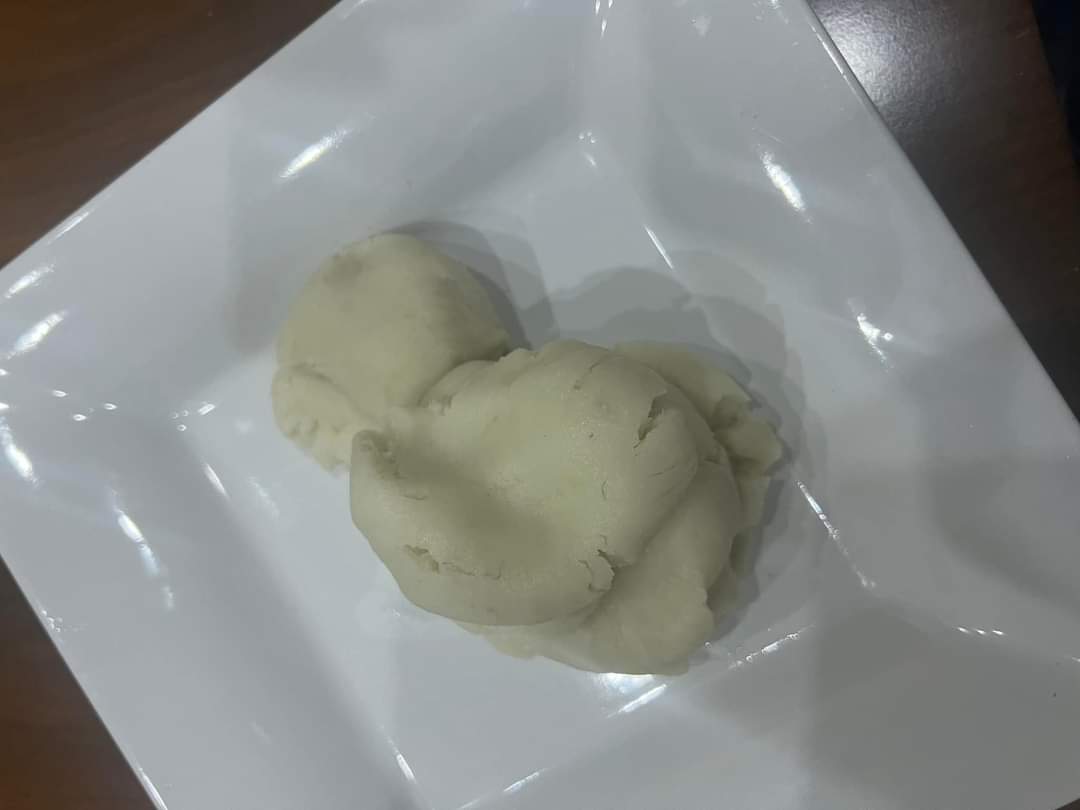The Agony Of Inflation: A Call For Urgent Action In Nigeria
BABAFEMI OJUDU

Recently, an agitated acquaintance reached out to me with a heartfelt plea: “Pass this information on to your friends in government; we are suffering,” he said. “I had to buy my seven-year-old son N1,000 worth of pounded yam. This doesn’t even include meat or any protein. I have four kids. How am I supposed to feed them if one meal for four kids costs me N10,000?” To underscore his point, he sent photos of N200 and N1,000 portions of pounded yam to prove his claim.
The situation is dire. A basket of tomatoes has surged from N25,000 to N130,000; the same is true for Tatase and Rodo peppers. Twenty-five kilograms of Garri now cost N30,000. People have resorted to eating things like congealed cow blood and cassava shafts, which are typically animal feed.
Since my adolescence, I have seen Tatase sold cheaply. It used to be one of the most affordable farm produce. Today, in my area, it sells three for N5, meaning it would cost nearly N5,000 to buy the pepper for a pot of soup for five people. This does not include tomatoes, onions, and other condiments, not to mention protein. Similarly, according to friends and sources, a single tomato now costs N500 in most southern markets, with only slightly lower prices in the northern parts.
Talking about protein, smallholders in the poultry sector are abandoning their pens. The same goes for fish farmers. The feeds are no longer affordable. Where a farmer is able to buy, they are turning up losses. A lot of fish feed, which used to be N13,000, has doubled to N26,000.
The challenges are compounded by inconsistent rainfall this year. In Ekiti, where I am based and where I farm, I have seen fields of corn and rice suffering from lack of rain. Many farmers have replanted their fields three times this season, yet the drought persists. In a good year, the markets would have been filled with maize and yam by now. Not so this year.
Approximately 80% of farming in Nigeria is rain-fed, and irrigation practices are rare. Where irrigation exists, fertilizers have become unaffordable, contributing to a nearly 500% increase in food prices. We should all expect an unprecedented food crisis to come next year.
All farm inputs have taken a jump. Last year, one could till a hectare of land for N25,000; today, one will be lucky to have someone do it for N75,000.
Transporting produce to the market has become exorbitantly expensive due to the high cost of diesel and PMS. For example, transporting a trailer of tomatoes from the north to the south now costs around N1.5 million, compared to N500,000 previously. Spare truck parts have also skyrocketed in price due to the exchange rates, and the cost of clearing new vehicles at the port has surged.
All of this has had an adverse effect on moving goods and animals across the country. A relatively big cow is sold for between N600,000 and N700,000, while the well-fed and robust one is now selling for upwards of one million. This time last year, one could still take N300,000 to the market and pick a cow big enough for one’s purpose. It is no longer the case.
For those celebrating Eid, the Muslim festival that demands sacrificing rams, it’s been frustrating for the believers. Rams go from between N350,000 and N700,000.

The public outcry is growing. Parents of newborns struggle to afford baby food and diapers, while those dependent on medications for critical ailments are in despair. It is not a bearable time to suffer from diabetes, cancer, asthma, etc. A relative of mine, who suffers from high blood pressure, used to spend N25,000 monthly on medication. Now, he needs N75,000. With a monthly income of less than N50,000, the increased cost feels like a death sentence. Even when the expense was N25,000, he relied on the generosity of friends and relatives to afford his medication.
The soaring prices, particularly for imported food items and drugs, have led to widespread adulteration and counterfeit products. The National Agency for Food and Drug Administration and Control (NAFDAC) must intensify efforts to protect citizens from these dangerous fake products. There is an alarming increase in counterfeit medications, baby formulas, beverages, and alcoholic drinks, pushing us toward a health emergency.
This is not the time for political squabbles or finger-pointing. It is a time for collective action and solutions. The government must acknowledge the severity of this crisis and declare an emergency in the food and drug sectors.
In conclusion, the inflation crisis in Nigeria demands urgent and concerted action from the government, citizens, and the private sector. By addressing these issues head-on, we can alleviate the suffering of millions and stabilize the economy for a more sustainable future.









